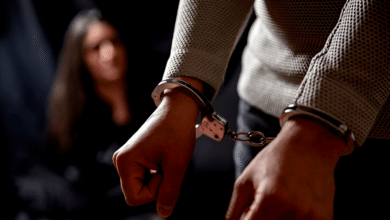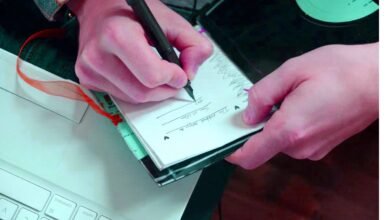Filing for Bankruptcy in Illinois A Lawyer’s Guide to Starting Fresh
Filing for bankruptcy in Illinois Our lawyer's guide explains Chapter 7 & 13 exemptions and how to rebuild credit for a fresh financial start.

Filing for bankruptcy in Illinois can be a difficult but necessary decision for individuals and businesses drowning in debt. Whether due to medical emergencies, job loss, or overwhelming credit card bills, bankruptcy offers a legal path to financial recovery. Understanding the process, eligibility requirements, and different bankruptcy chapters is crucial to making informed decisions. This guide provides a comprehensive overview of filing for bankruptcy in Illinois, helping you navigate the legal complexities while protecting your most valuable assets.
While bankruptcy may seem intimidating, it is designed to provide relief and a fresh start. With the right legal guidance, you can determine whether Chapter 7 liquidation or Chapter 13 repayment is best for your situation. From understanding Illinois-specific exemptions to managing the long-term impact on your credit, this guide will walk you through each step. If you’re considering filing for bankruptcy in Illinois, consulting an experienced bankruptcy attorney can help ensure you maximize debt relief while safeguarding your financial future.
Filing for Bankruptcy in Illinois A Lawyer’s Guide to Starting Fresh
Federal Process with State-Specific Rules
Bankruptcy cases in Illinois are handled in federal court under the U.S. Bankruptcy Code, meaning the overall process follows nationwide regulations. Filing for Bankruptcy, Illinois has its own set of exemption laws that determine what property you can protect from creditors. These exemptions cover essential assets like your home, car, retirement accounts, and personal belongings. Because Illinois does not allow filers to use federal exemptions, understanding these state-specific rules is critical to safeguarding your property when filing for bankruptcy.
Impact on Your Financial Future
The type of bankruptcy you file (Chapter 7 or Chapter 13) and how you navigate exemptions can significantly affect your long-term financial stability. For example, Filing for Bankruptcy claiming Illinois’ homestead exemption could mean keeping your Filing for Bankruptcy, while mishandling asset disclosures might lead to unnecessary liquidation. Additionally, bankruptcy stays on your credit report for years, influencing future loans, rentals, and employment opportunities. Consulting with a bankruptcy attorney ensures you maximize protections and minimize negative consequences, helping you rebuild stronger financial footing
Types of Bankruptcy
Chapter 7 Bankruptcy
Chapter 7 is often referred to as “liquidation” bankruptcy because it involves selling non-exempt assets to pay off creditors. However, most filers in Illinois qualify for exemptions that protect essential property such as a home, car, and personal Filing for Bankruptcy. To qualify, you must pass the means test, which compares your income to the state median. If your income is too high, you may need to consider Chapter 13 instead.
Chapter 13 Bankruptcy
Chapter 13 allows debtors with a steady income to create a repayment plan spanning three to five years. This option is ideal for those who have fallen behind on mortgage or car payments but want to keep their property. Unlike Chapter 7, Chapter 13 does not require Filing for Bankruptcy but instead restructures debt into manageable payments.
Eligibility Requirements
Before filing, you must meet certain criteria Credit Counseling Completion of a mandatory credit counseling course from an approved agency within 180 days before filing. Residency You must have lived in Illinois for at least 91 days before filing. Previous Bankruptcy Discharge If you’ve filed before, you may need to wait before filing again (e.g., eight years between Chapter 7 discharges).
The Bankruptcy Process in Illinois
Consultation with a Bankruptcy Attorney
A skilled Filing for Bankruptcy lawyer will analyze your income, debts, and assets to determine whether Chapter 7 liquidation or Chapter 13 repayment better suits your situation. They’ll strategically apply Illinois exemption laws to protect your home, car, and essential possessions while guiding you through every legal requirement.
Filing the Petition
Your bankruptcy attorney will meticulously prepare and file your petition with the court, including detailed schedules listing all assets, debts, income sources, and monthly expenses. Upon filing, the powerful automatic stay immediately takes effect, legally stopping all creditor collection efforts including harassing calls, lawsuits, repossessions, and wage garnishments. This court-ordered protection gives you breathing room while your bankruptcy case progresses through the legal system.
Meeting of Creditors
The 341 meeting of creditors, typically held 20-40 days after filing, is a mandatory proceeding conducted by your bankruptcy trustee in an informal setting. While creditors rarely attend these hearings for consumer cases, the trustee will verify your identity and ask standard questions about your petition for review and financial affairs. Your bankruptcy attorney will prepare you for potential questions and accompany you to ensure proper procedure.
Asset Liquidation or Repayment Plan
In Chapter 7 bankruptcy, the court-appointed trustee will identify and liquidate any non-exempt assets (like unprotected property or valuables) to distribute funds to your creditors, though most filers keep all their property through Illinois exemptions. For Chapter 13 cases, you’ll start making structured monthly payments through a 3-5 year repayment plan approved by the court, Filing for Bankruptcy secured debts like mortgages while potentially reducing unsecured debts.
Debt Discharge
The bankruptcy discharge order permanently eliminates your legal obligation to repay qualifying debts, creating a financial fresh start while prohibiting creditors from any future collection attempts. Common discharged debts include credit cards, medical bills, personal loans, and in some cases, even tax obligations or mortgage deficiencies. Your bankruptcy attorney will review the final discharge paperwork to confirm all eligible debts are properly included and the order is correctly entered by the court.
Illinois Bankruptcy Exemptions
Illinois allows debtors to protect certain assets, including Homestead Exemption Up to $15,000 in home equity. Vehicle Exemption Up to $2,400 in car equity. Personal Property Filing for Bankruptcy, household goods, and tools of trade. Retirement Accounts Most tax-exempt retirement funds are protected.
Impact on Credit and Rebuilding After Bankruptcy
A bankruptcy filing remains on your credit report for up to 10 years (Chapter 7) or seven years (Chapter 13). However, rebuilding credit is possible by Securing a secured credit card. Making timely payments on remaining debts. Monitoring credit reports for errors.
Read More: Green Card Through Marriage New York Legal Checklist for 2025
Conclusion
Filing for bankruptcy in Illinois is not an end, but rather a strategic new beginning for those burdened by overwhelming debt. While the process requires careful navigation of legal procedures and financial disclosures, the result can be life-changing debt relief and the opportunity to rebuild your financial foundation. By understanding the differences between Chapter 7 and Chapter 13 bankruptcy, leveraging Illinois’ exemption laws, and working with an experienced bankruptcy attorney, you can make informed decisions that protect your most important assets while discharging or restructuring unmanageable debts.
The decision to pursue filing for bankruptcy in Illinois should never be made lightly, but it can provide the fresh start you need when other options have been exhausted. Though bankruptcy will impact your credit temporarily, responsible financial habits post-discharge can help you rebuild stronger than before. If debt has become unmanageable, consulting a knowledgeable bankruptcy lawyer can help you evaluate your options, navigate the legal process with confidence, and ultimately achieve the financial freedom you deserve. Remember – bankruptcy exists to help honest debtors recover, and with proper guidance, you can emerge ready for a brighter financial future.
FAQs
Will I lose my home if I file for bankruptcy?
Not necessarily. Illinois offers a homestead exemption that protects up to $15,000 in home equity under Chapter 7. In Chapter 13, you can keep your home by staying current on payments.
How long does bankruptcy stay on my credit report?
Chapter 7 remains for 10 years, while Chapter 13 stays for seven years. However, you can start rebuilding credit immediately after discharge.
Can I file for bankruptcy without a lawyer?
While it’s possible, bankruptcy laws are complex. An Filing for Bankruptcy helps maximize exemptions, avoid mistakes, and ensure a smooth process.
What debts cannot be discharged in bankruptcy?
Student loans, child support, alimony, and recent tax debts are typically non-dischargeable.
How soon can I file for bankruptcy again if needed?
For Chapter 7, you must wait eight years from a Filing for Bankruptcy Chapter 7 filing. For Chapter 13, the waiting period is two to four years, depending on the prior case.











